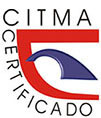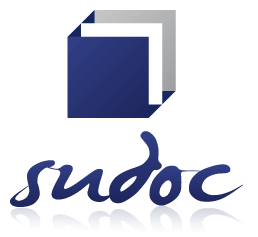Code of Ethics and Best Practice
Code of Ethics
The journal Islas is committed to the quality of its content and the exercise of good ethical practices based on the code of conduct and good practices defined by the Committee on Publication Ethics (COPE) for editors of scientific journals. In addition, the journal adheres to the Directory of Open Access Journals (DOAJ) and the Open Access Scholarly Publishers Association (OASPA). All parties involved (authors, journal editors, peer reviewers, and the publisher) have to agree upon standards of ethical behavior.
Ethical standards for the Editorial Collective:
- To improve the journal taking into account different points of view of authors, readers, reviewers and editorial board members.
- The editors' decisions to accept or reject a paper for publication will be based on the contribution of the paper, originality, clarity, validity of the study, and its relevance to the subject area of the journal.
- To evaluate articles without taking into account race, gender, sexual orientation, religious belief, political belief, nationality, ethnic origin or personal position of the authors.
- To decide which articles should be sent for peer review, as well as which are in conditions to be published after their review.
- To preserving the confidentiality of the evaluated articles (not disclosing any information about their content, subject matter, authorship, data included, analysis performed or final conclusions).
- To guarantee the preservation of all journal content.
- To publish corrections, clarifications, retractions and apologies when necessary
- To provide all the actors in the process with the necessary information to perform their function efficiently.
- To ensure that each published document correctly reflects the results and interpretations proposed by the authors.
- To archive reports and results of the evaluations of each article, and make them available whenever requested by the competent natural and legal persons.
- To ensure that peer review in the journal is fair, impartial and timely.
- To adopt the peer review methods most appropriate for the journal and the research community it serves.
- Will be alert to intellectual property issues.
- Best practices for publishers will also include adoption of systems for detecting plagiarism (e.g., software).
Ethical standards for authors:
- Authors must ensure that the manuscripts submitted to the journal comply with ethical principles, hence they are responsible for the veracity of the information and evidence supporting the data and analysis presented in the paper, as well as that all those listed as authors have significant contributions to the work.
- Authors are responsible for the originality of the manuscript and must guarantee that it is not in the process of evaluation, nor has it been published in another journal, nor in any other means of publication of academic content.
- The willingness to submit a paper to the journal will not be rejected unless problems are identified in the established submission guidelines.
- A guide will be made available to the author with all the characteristics and elements to be checked in the peer review process before and during the submission process.
- The evaluation of each document submitted to the journal will be carried out by competent professionals specialized in each of the publication topics.
- Authors will remain anonymous throughout the peer review process.
- The presentation of other authors' ideas as one's own is not an acceptable practice.
- Authors should report any source of funding that has allowed the study to be developed, as well as any other commitment that could influence the interpretation of the results.
- All authors are obliged to provide the necessary corrections of mistakes.
- Only authors are considered authors of the work according to the Taxonomy of Roles of Contribution (CRediT).
- In acknowledgements, names of persons or institutions that have provided other types of support for the work will be placed in the acknowledgements. Only contributions that the authors consider relevant will be acknowledged.
- In cases in which ethical misconduct is detected concerning the incorrect assignment of authors, omission of authors and undeclared conflict of interest, the journal will automatically cancel the publication of the work and will issue a note to the entire scientific community informing the event and the names of those responsible for the unethical conduct.
- The editors will support authors whose copyrights have been violated or who have been victims of plagiarism by requesting retractions or removal of material from websites regardless of copyright.
Ethical standards for the Scientific Committee:
- The reviewers must issue their opinion in an objective and unbiased manner.
- All evaluators undertake to refrain from communicating to third parties, disseminating or publishing partial or total information of the papers they have agreed to evaluate, or any use different from that requested by the journal.
- The journal will guarantee the preservation of reviewers' anonymity during the entire process
- Reviewers must indicate their willingness to comply with the review process in the terms of time and rigor indicated by the journal and to issue objective, respectful and academically supported concepts.
- Likewise, they must report to the editor, in a timely manner, any conflict of interest they may detect when reading an article sent for review, and alert any possible situation of plagiarism detected during the reviewing process.
- The reviewers will have all the necessary orientation and preparation, as well as an evaluation guide, which will allow them to know how they should carry out the evaluation, weigh the quality of each part of the document, state their observations and final decision.
- Reviewers will immediately communicate to editors about detected violations of good ethical practices during the review process such as: unethical research design, inadequate manipulation of data and rights, plagiarism, among others.
- The necessary procedures will be implemented to ensure that reviewers' comments reach the authors in their entirety and that they do not contain offensive or defamatory comments.
- Regularly monitor the performance of reviewers and take measures to ensure that reviews are of high quality.
- To maintain and renew the database of reviewers so that it presents an adequate representation of the scientific community specialized in the journal's publication topics.
Authorship and contribution
The journal sanctions guest authorship and similar practices in the processes of scientific and academic production, such as multiple submissions or redundant publications. The corresponding author should ensure that authorship includes as co-authors only the scholars who have had a relevant role in the conception, design, execution, or interpretation of the presented research, making a significant contribution. All co-authors must check and approve the final version of the manuscript, and agree to its submission for publication.
Subsequent discussions and corrections
The editors will encourage discussion and consider cogent criticisms of work published in the journal. The journal allows the publication of corrections in the form of erratum whenever the case merits it. The editor or section editor is in charge of evaluating the pertinence of the errata and reserves the right to accept its publication or not. The journal is very rigorous in the editing and production processes prior to the publication of documents in order to eliminate possible errors that may lead to subsequent corrections.
Complaints and appeals
Complaints and appeals should be made to the main editor of the journal at the e-mail addresses available in the Contact section. The editor will receive the request, maintain confidentiality, and will respond, when appropriate, as soon as possible. In cases where the situation warrants it, the editor will consult the Editorial Committee to deal with the controversy raised.
When the reason for the complaint or appeal involves a breach of some of the good ethical practices established by the journal and the Committee on Publication Ethics (COPE) in its Code of Conduct, it will proceed according to the COPE Flowcharts for each case.
Conflict of interest
Authors are obliged to disclose actual or potential conflicts of interest with institutions or other persons that may inappropriately influence their work.
Requests made by authors not to have their work evaluated by a reviewer declared in the journal's referee portfolio will be respected, as long as the conflict of interest between the reviewer and one or more of the authors of the paper can be adequately justified.
Editors or reviewers will communicate in a timely manner to the editors any conflict of interest they may detect when reading an article sent for review.

















